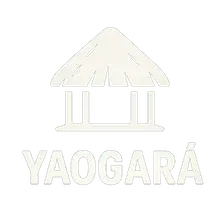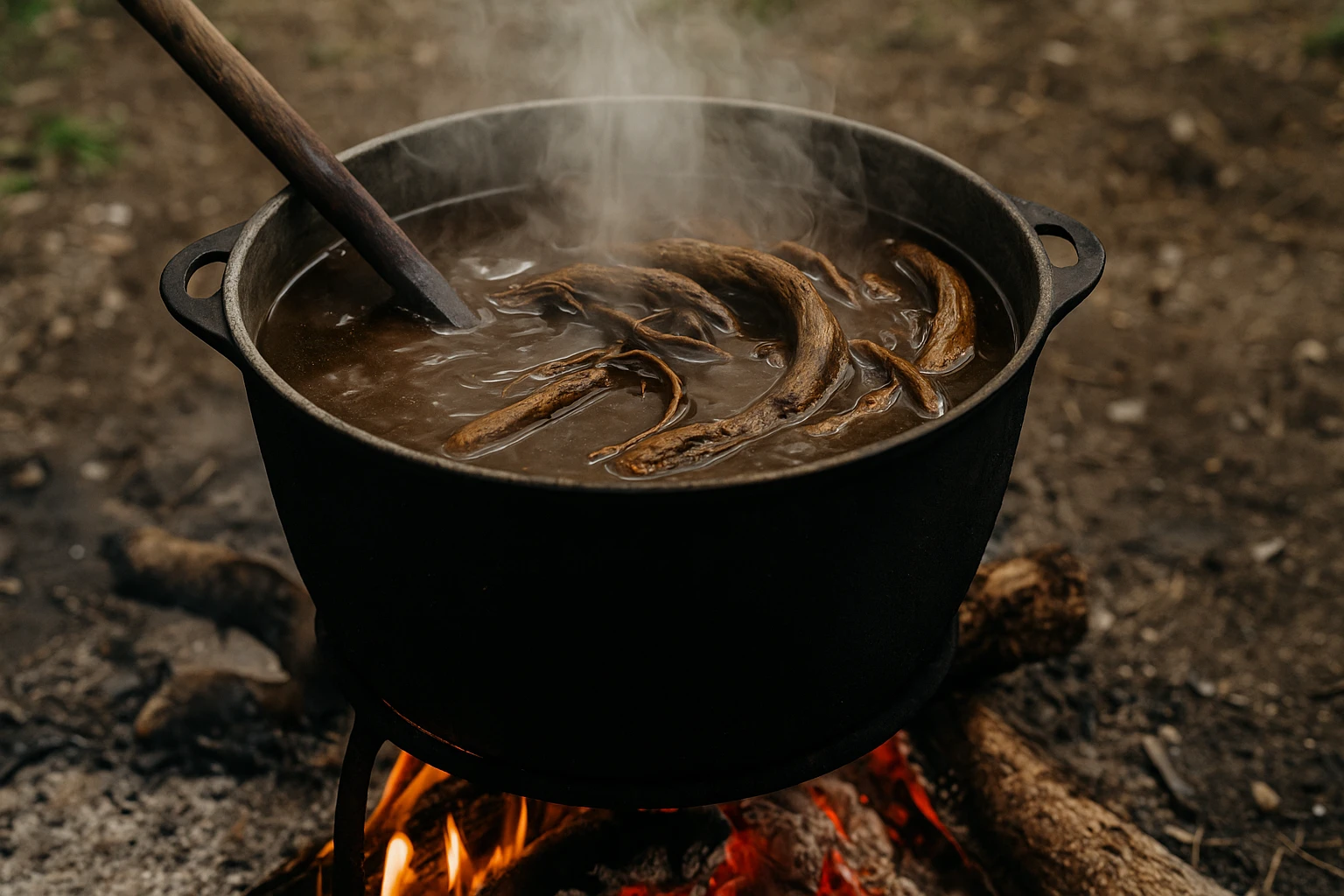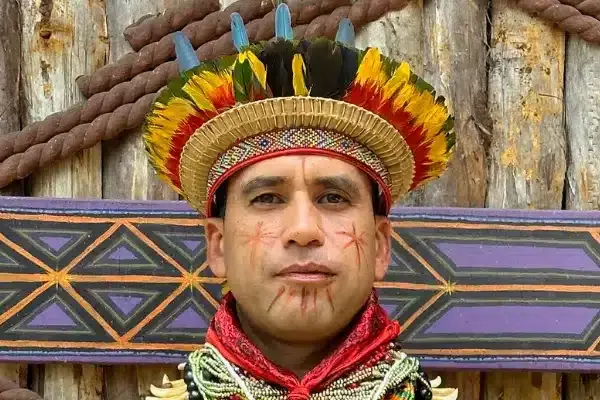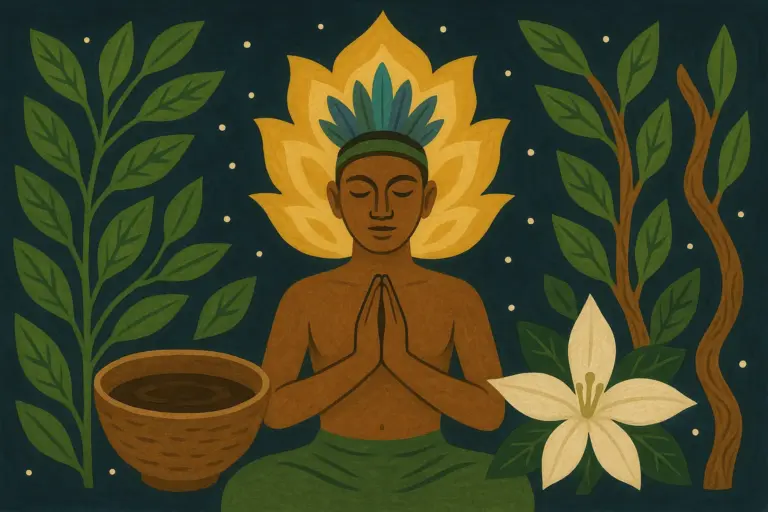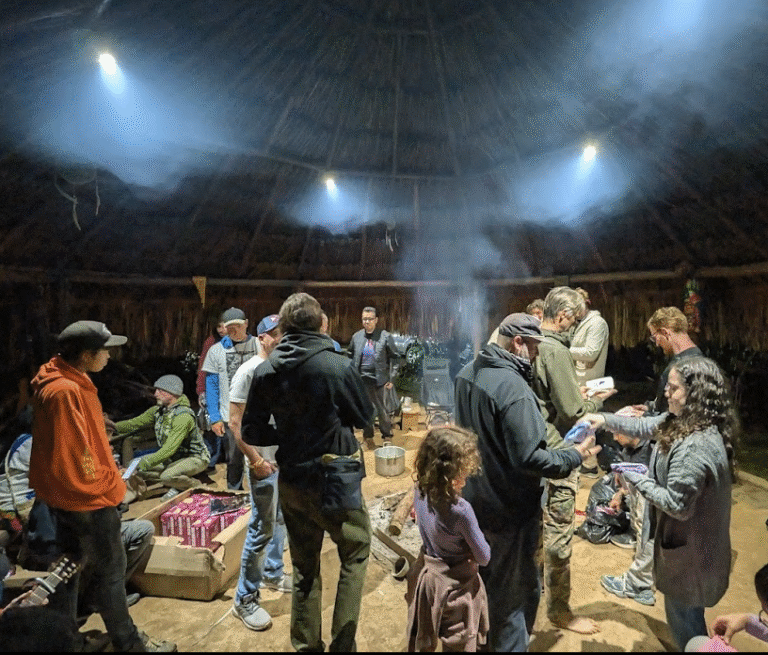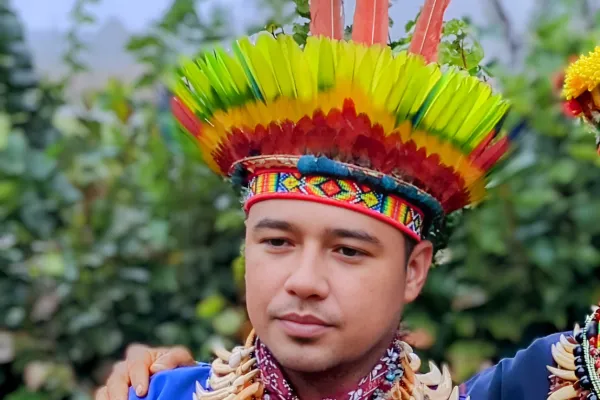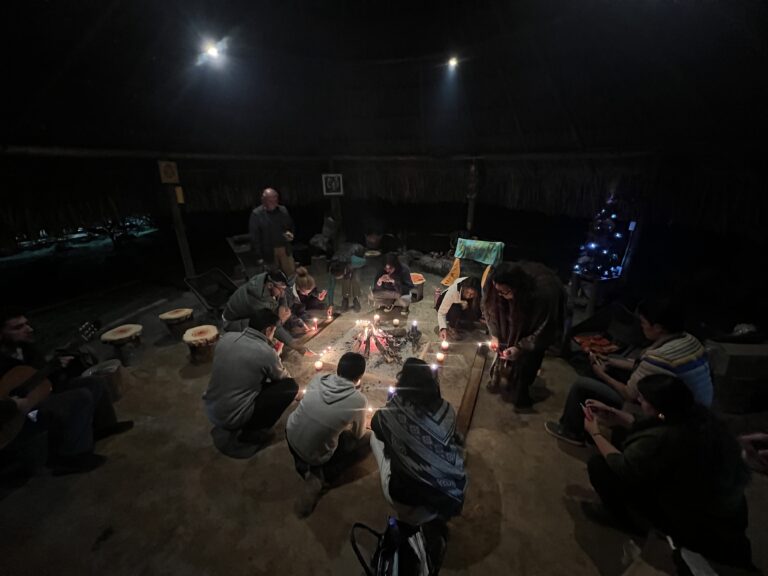Iowaska (Ayahuasca) Explained: The Ancient Medicine That’s Changing Lives
Iowaska is a common way people spell ayahuasca, also known in Colombia as yagé. Most people search this word because they’ve heard it somewhere and want to understand what it actually refers to. Ayahuasca is not a trend or shortcut. It’s a traditional Amazonian plant medicine held within Indigenous lineages, shaped by preparation, guidance, and responsibility. Understanding that context is essential before going any further. At Camino al Sol, we’ve been honoring these roots for over 15 years through our ayahuasca retreat in Colombia.
What is iowaska? (ayahuasca/yagé)
Iowaska, ayahuasca, and yagé are different spellings for the same sacred brew. Each name reflects a place and a people: Quechua, Colombian, and the modern world online. In Colombia, the same brew is commonly called yagé. Traditionally it combines the Banisteriopsis caapi vine with a leaf containing DMT, most commonly chacruna (Psychotria viridis), to open a window into expanded awareness when held in proper ceremony.
| Term | Region/Usage | Meaning |
| Iowaska / Ayahusca / Ayhuasca / Aiowaska | Common misspelling online | Refers to the same brew as ayahuasca/yagé |
| Ayahuasca | Peru, Ecuador, global | Quechua for “vine of the soul” |
| Yagé | Colombia | Local name for the sacred brew |
| Caapi | Amazon (various) | Refers to the Banisteriopsis caapi vine |
| Daime | Brazil (Santo Daime) | Name for ayahuasca in syncretic Christian traditions |
| Nixi Pae | Brazil (Huni Kuin, other Indigenous peoples) | Local name for the same brew, “vine drink” |
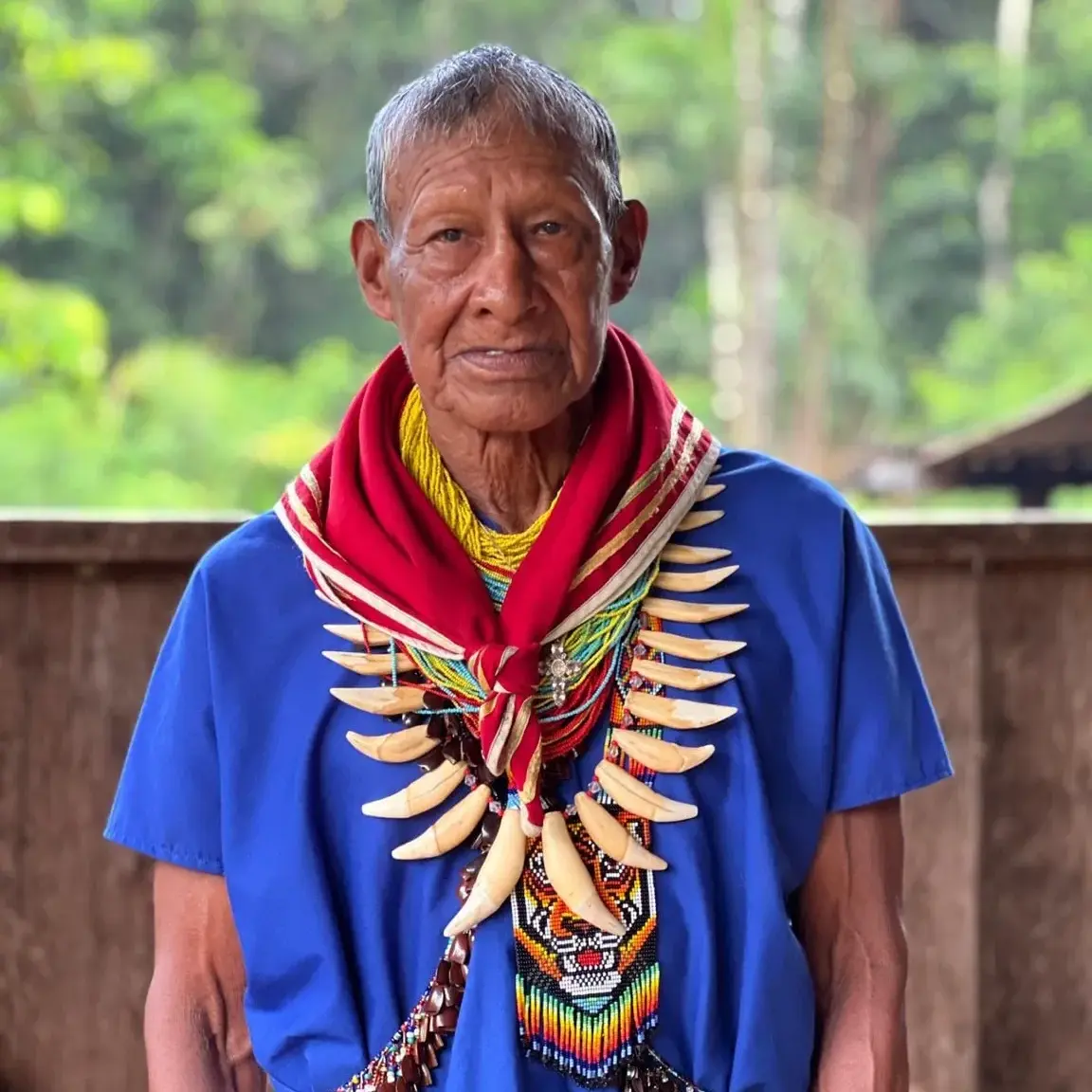
Cultural Roots of iowaska: Beyond Chemistry
Iowaska is not defined by its molecules but by the way it is held. Ceremony gives the brew its meaning and its safety. Elders guide the night with ícaros (healing songs), prayer, and disciplined ritual. In this way, the medicine becomes a teacher — not a trend, not entertainment. As we often remind our guests: the real ceremony is life itself, and what matters most is how you live what you learn.
“After seven ceremonies with Camino al Sol, they consistently share ancestral knowledge with respect. You will be well cared for and guided throughout the experience. The music — true musical medicine.”
Retreat Guest
Where can you drink iowaska?
For thousands of years, Indigenous peoples of South America have worked with ayahuasca. The brew combines the Banisteriopsis caapi vine with leaves of the Psychotria (chacruna), and its effects on the body include changes in heart rate, emotional release, and altered states of awareness. Because it contains DMT and interacts with monoamine oxidase in the body, some countries classify it as a controlled substance. In Colombia, however, the medicine is legal within traditional and spiritual contexts, and many participants report profound ayahuasca experiences that support mental health and personal growth.
Iowaska (ayahuasca/yagé) is taken in sacred ceremony, guided by trained facilitators and rooted in tradition. The most common locations include:
- Colombia – Home to yagé traditions, with authentic retreats guided by Indigenous elders near Medellín and throughout the Amazon.
- Peru – Known for ayahuasca ceremonies in the Amazon region around Iquitos, often Quechua-led.
- Brazil – Ayahuasca (often called Daime or Nixi Pae) is part of Indigenous and syncretic traditions.
- Costa Rica – Popular with foreigners for luxury retreat centers; ask carefully about lineage and safety.
- Worldwide retreats – Some countries allow ceremonies under exemptions or spiritual associations, but authenticity and safety vary widely.
Iowaska experience: what it’s like
Every person’s path with ayahuasca is unique, yet certain patterns often appear. The medicine teaches through body, heart, spirit, and the choices you carry afterward.
- Physical cleansing: Nausea, vomiting, sweating, tears — understood as release and purification.
- Emotional insight: Memories surface; patterns show themselves; difficult moments can lead to authentic relief.
- Spiritual perspective: Visions, archetypes, and a felt sense of connection with nature or spirit.
- Integration: The long-term change comes afterward — in your choices, relationships, and responsibilities.
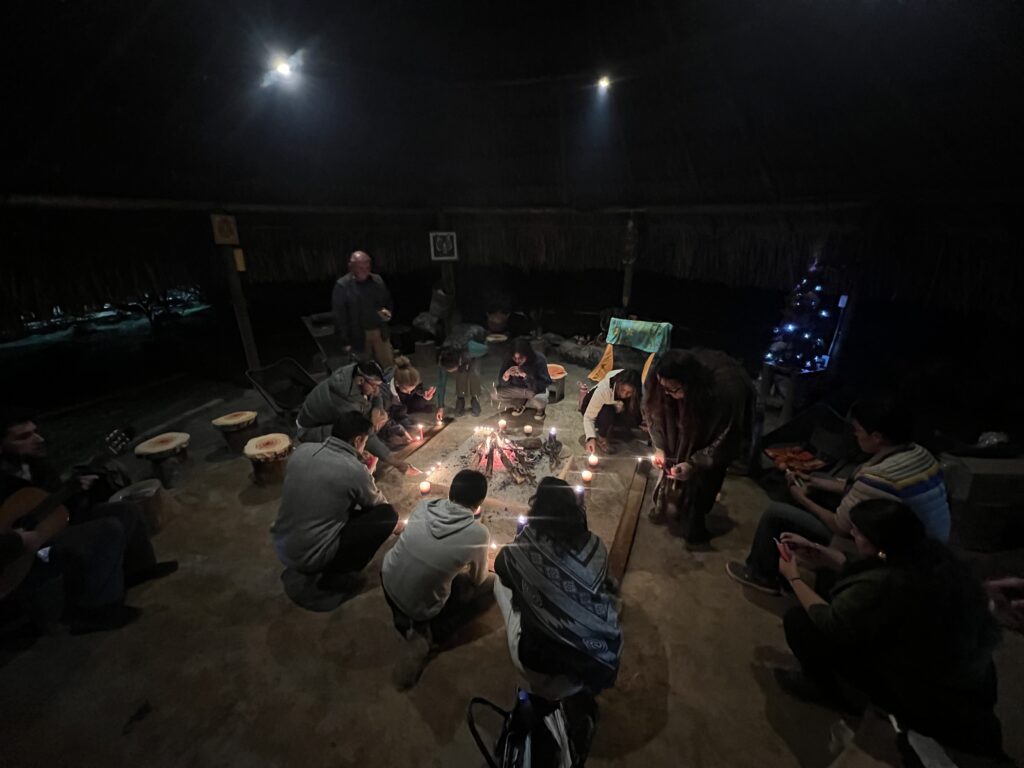
Iowaska effects & duration (what to expect)
“Over 80% of my PTSD symptoms disappeared after just two ceremonies. The care, the music, the safety — I felt completely supported.”
Retreat Guest
Effects: onset in 20–60 minutes, often beginning with body sensations and a quieting of the mind; waves of emotion, imagery, and insight guided by songs and prayer. Peak: 2–4 hours. Total duration: about 4–6 hours, with after-glow and reflection continuing into the next day. Experiences vary by person, dose, and the ceremonial container.
Iowaska ceremony: what’s it like
A yagé ceremony is not entertainment — it is a sacred gathering held at night under the guidance of experienced elders. Participants drink the plant medicine in a safe, prepared space, accompanied by ícaros (healing songs), prayer, and silence. The night unfolds in waves: cleansing, visions, emotions, and insight. Each person’s experience is unique, yet the structure of the circle — music, care, and tradition — creates safety and meaning.
Iowaska safety: screening, diet, and setting
The path with iowaska is not for everyone. Safety comes first. Responsible facilitators begin with medical screening — especially for heart conditions and medications such as SSRIs. They set clear protocols, keep groups small, and prepare the space with care. Preparation also means caring for yourself: following a clean diet, avoiding alcohol and stimulants, and conserving energy in the days before ceremony. These steps are not restrictions but ways of honoring the medicine, protecting your body, and keeping the circle safe.
- SSRIs/MAOIs or certain antidepressants (risk of interactions)
- Uncontrolled hypertension or heart conditions
- History of mania/bipolar episodes
- Pregnancy or breastfeeding
- Recent surgery or serious medical issues—doctor clearance advised
Start with our in-depth guide: Ayahuasca Safety Guide.
Why People Seek Iowaska
People are called to iowaska for many reasons, but beneath them all is the search for truth and balance. Some arrive carrying grief, trauma, anxiety, or destructive cycles that have weighed on them for years. Others come at a crossroads — during life transitions when clarity and courage are needed. For many, the medicine deepens their connection with nature and purpose, reminding them that they are part of something larger than themselves. And some are drawn by the desire to explore consciousness, not as escape, but with humility and guidance, in the safety of ceremony. In Colombia, this search is held within the living tradition of yagé, where the medicine is respected as a teacher, not a trend.
- Healing grief, trauma, anxiety, or destructive cycles
- Clarity during life transitions
- Deepening connection to nature and purpose
- Exploring consciousness with humility and guidance
“Unlike commercialized retreats, Camino al Sol offers a traditional, caring, holistic weekend — transformative on every level.”
Retreat Guest
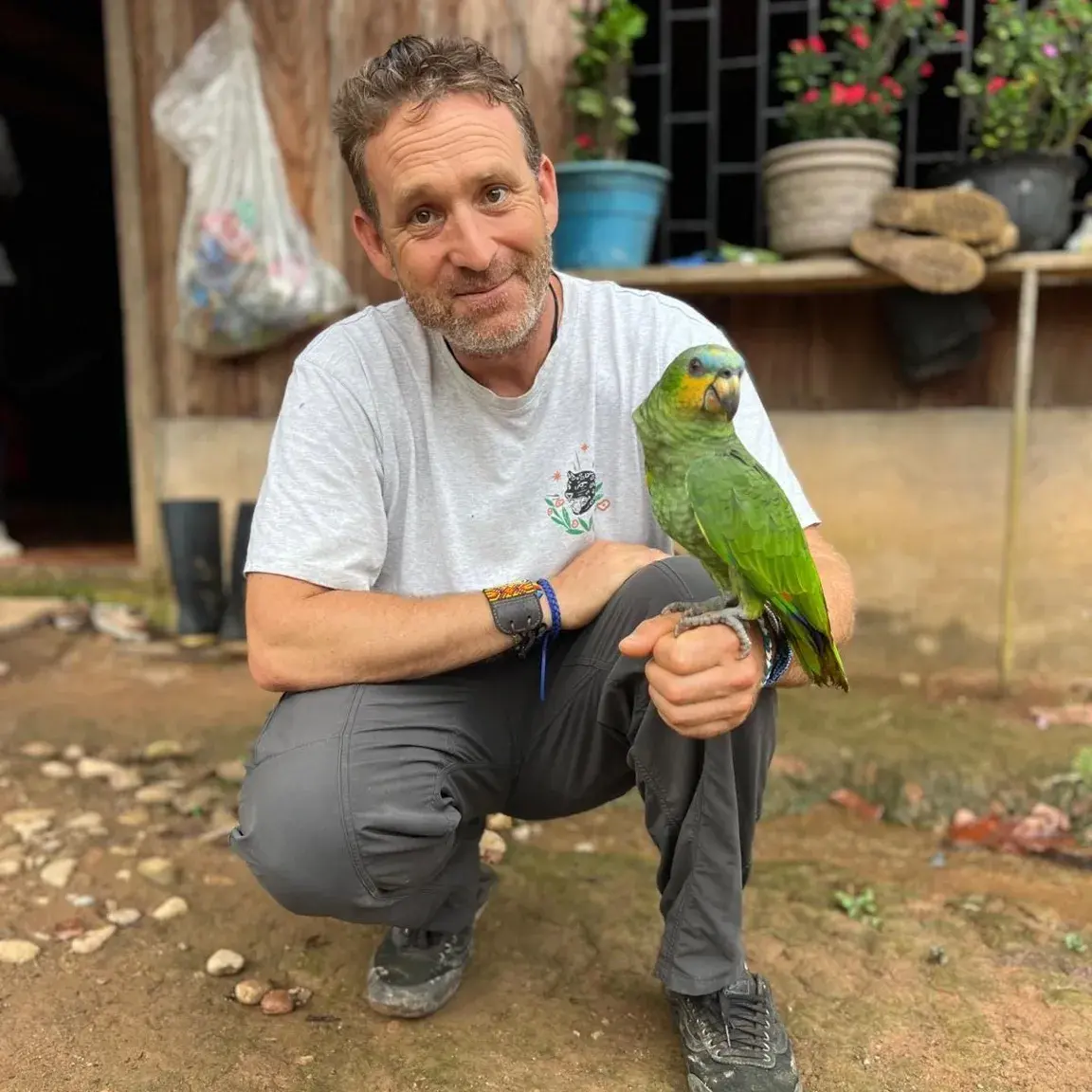
Iowaska meaning
The word “iowaska” is simply another spelling of ayahuasca, often written phonetically in English to reflect how it sounds: eye-wah-ska. Its meaning, like “ayahuasca” in Quechua, is “vine of the soul.” In Colombia, the same sacred brew is called yagé ayahuasca.
Iowaska research: what science is finding
Modern research into iowaska (ayahuasca/yagé) is still in its early stages, yet the findings are encouraging. Studies suggest that the brew can temporarily quiet the brain’s “default mode network” — the cycle of repetitive, self-focused thinking — and increase neuroplasticity, the brain’s ability to form new pathways. This may help explain why some people report relief from depression, anxiety, PTSD, or addiction when ceremonies are held with proper support. Researchers are careful to note that these are potential benefits, not guarantees. For an overview, see peer-reviewed summaries in the National Library of Medicine (e.g., NCBI/PMC).
Where the Real Work of Iowaska Happens
Insight without integration fades quickly. After ceremony, the practice begins: keep a journal, rest deeply, spend time in nature, and seek the counsel of trusted guides. Choose one simple change you can truly live. Healing is not instant perfection. It is honest practice — day by day, choice by choice.
Find an authentic iowaska retreat in Colombia
Colombia holds living lineages and a culture of respect around yagé. Medellín is a practical hub near the mountains, making travel simpler. When evaluating a retreat, ask clear questions about lineage, safety protocols, group size, and integration support. Authentic spaces do not hide these details.
Related articles:
- Best Place to Drink Ayahuasca in Medellín
- Authentic Ayahuasca Retreat in Colombia
- Meet us through the Camino al Sol
Responsible Expectations (Read This Twice)
No brew — not even iowaska — can fix your life for you. It can reveal what is true and what stands in the way. The rest is your responsibility. Nothing will magically change, except the way you perceive and the way you assume life. From there, everything can evolve.
Key Takeaways About Iowaska
- Iowaska, ayahuasca, and yagé are different names for the same sacred brew.
- Safety is non-negotiable: honest medical screening, diet preparation, and trained facilitators.
- Integration matters most — insights only become wisdom when lived out day by day.
- Seek authentic lineages, transparent retreat centers, and spaces rooted in respect for tradition.
FAQs About Iowaska (Ayahuasca/Yagé)
Further Reading & Helpful Links
- Ayahuasca Safety Guide
- Best Place to Drink Ayahuasca in Medellín
- Authentic Ayahuasca Retreat in Colombia
- About Camino al Sol
- NIH / NCBI – PubMed Central (Ayahuasca research hub)
Final word: The medicine is not used recreationally. It isn’t here to turn life into spirituality; it’s here to turn spirituality into life. Walk with humility; integrate honestly; let the lessons shape the way you live.
